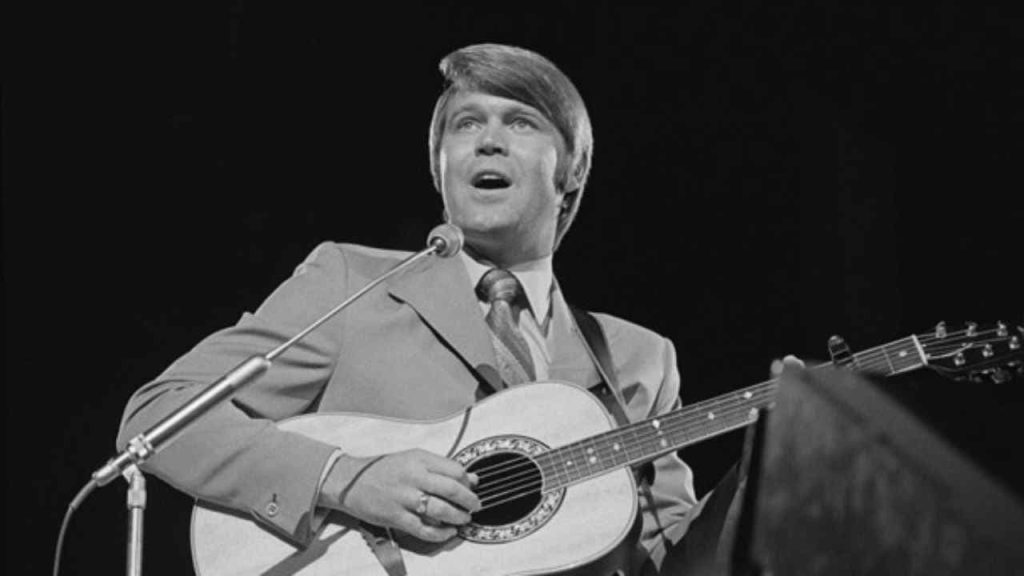
“Wichita Lineman” – A Masterpiece by Glen Campbell
Glen Campbell’s 1968 masterpiece, “Wichita Lineman,” isn’t just a song; it’s a timeless portrait of the human condition, wrapped in the warm hues of countrypolitan. Released at a time of societal upheaval and change, the song resonated deeply with listeners, climbing to No. 3 on the Billboard Hot 100 and topping the Country Singles chart. It became one of Campbell’s signature songs and is frequently cited as one of the greatest songs ever written. The song was released as part of the album of the same name, Wichita Lineman.
The genius behind this evocative piece is Jimmy Webb, a songwriting maestro who crafted a narrative as sparse as the Kansas plains. Webb had been driving through rural Oklahoma when he saw a lineman working atop a telephone pole, silhouetted against the vast sky. This image sparked the idea for a song about a lonely lineman, a man whose job keeps him isolated yet connected to the world through the wires he maintains.
The beauty of “Wichita Lineman” lies in its simplicity. The lyrics depict the mundane tasks of a lineman – “I am a lineman for the county” – intertwined with his inner thoughts and feelings. He’s not just fixing telephone lines; he’s longing for human connection, yearning for a love that seems just out of reach. “And I need you more than want you, and I want you for all time,” he sings, capturing the universal desire for companionship. These quiet confessions, coupled with the haunting melody, create a sense of profound melancholy and empathy.
Campbell’s smooth tenor voice lends a tender vulnerability to the song, conveying the lineman’s loneliness with heartbreaking sincerity. The instrumental arrangement, featuring a distinctive blend of acoustic guitar, pedal steel guitar, and strings, further enhances the song’s melancholic atmosphere. The use of the pedal steel, in particular, evokes the wide-open spaces of the American heartland, amplifying the feeling of isolation. The almost ethereal guitar solo, played by Campbell himself, echoes the loneliness of the lyrics.
The song’s meaning is open to interpretation, adding to its enduring appeal. Some see it as a metaphor for the struggles of the working class, highlighting the sacrifices they make to provide for their families. Others view it as a broader commentary on human connection, exploring the universal desire for love and belonging. Perhaps it’s the subtle hint of loneliness we all experience at some point, the quiet longing for a connection that truly understands us.
It is worth noting that Wichita Lineman was unusual in its time for its more introspective lyrics and sophisticated musical arrangement. It was part of a wave of country music that was pushing the boundaries of the genre, incorporating elements of pop and even orchestral music. This “countrypolitan” sound, as it came to be known, helped to broaden the appeal of country music and attract a wider audience.
For many, especially those who lived through the late 60s, “Wichita Lineman” is more than just a song. It is a memory, a snapshot of a time when music could capture the complex emotions of the human experience with such raw honesty and beauty. It continues to resonate today precisely because those feelings of loneliness, of striving for connection, of searching for meaning in our work, are universal and timeless. It’s a testament to the power of music to touch our souls and remind us that we’re not alone in our struggles. The song’s enduring legacy is cemented by countless covers from artists across genres, each adding their own interpretation to this timeless masterpiece.